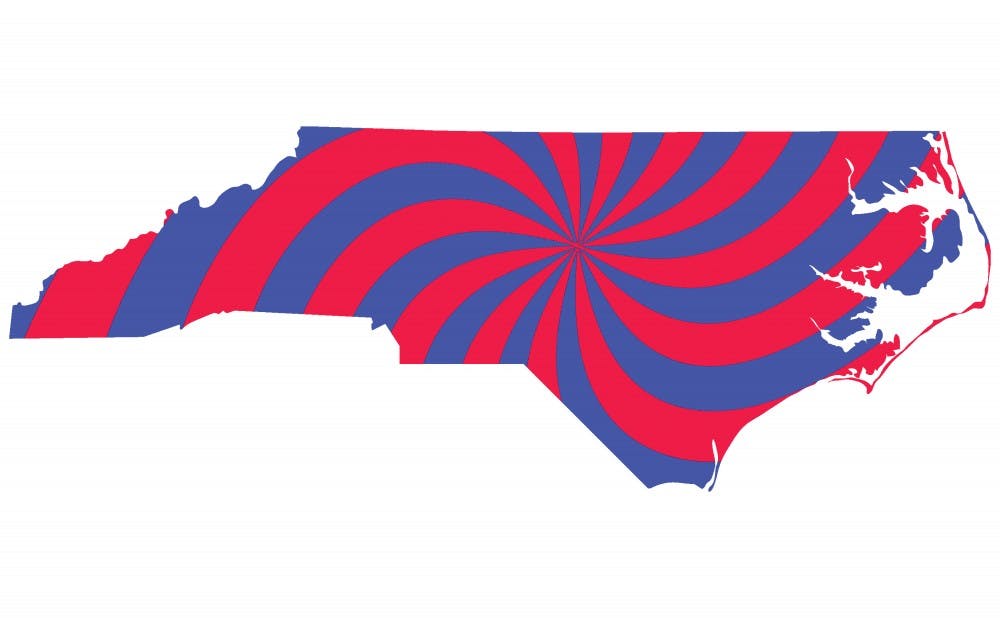Duke will host a conference on ending partisan gerrymandering Jan. 25 and 26 in Penn Pavilion.
Hosted by the Center for Political Leadership, Innovation and Service (POLIS), the event will bring 150-200 experts and advocates from across the country, including Congressman David Price (D-NC) and Tom Ross, the former president of the University of North Carolina system.
The Reason, Reform and Redistricting Conference will span 14 sessions on topics ranging from racial equity and advocacy for reform in North Carolina to recent reform victories in other states.
“[Gerrymandering is] just a very important piece of the puzzle in trying to claw back at the extreme partisanship that characterizes our politics today," said Fritz Mayer, director of POLIS and professor of public policy. "It's not everything, but these highly partisan gerrymandered districts have been part of the reason why we get such entrenched, polarized position taking in North Carolina and other states.”
The event is co-sponsored by the Sanford School of Public Policy and Common Cause—a nonpartisan grassroots watchdog group with a pro-democracy agenda. The organization has been critical of the congressional maps of both Maryland and North Carolina, which respective map challengers argue have been gerrymandered with Democratic and Republican bias.
Mayer said Common Cause has resources on the subject that Duke does not, but the University has the ability to bring groups together that may or may not attend if the event was only sponsored by Common Cause.
Nevertheless, Mayer said finding a solution to partisan gerrymandering has risen to the top of the policy agenda of many congressional leaders.
"Two years ago when we first started talking about gerrymandering...it was kind of an obscure thing to be doing," Mayer said. "And now it's amazing that I don't have to define gerrymandering every time I talk about it. It has become an issue. I think politicians now have to answer a bit more than they did before as to what stand they take on this issue."
Cost of attendance is $50 per attendee. Students can attend for free and register here.
Earlier this month, the Supreme Court agreed to hear oral argument from Common Cause v. Rucho—a case in which map challengers claim the current congressional map is an unconstitutional partisan gerrymander. The case will make its way to the Court on an undecided day in March.
In Jan. 2018, a federal three-judge panel for the U.S. District Court for the Middle District of North Carolina struck down the congressional map as unconstitutional, unfairly advantaging Republican voters.
Because the Supreme Court had already agreed to hear two other partisan gerrymandering cases for the 2017-2018 term, the Court remanded Common Cause to the district court. The district court upheld its previous ruling that North Carolina's congressional map was unconstitutional.
"Every explanation is politics, politics and my opponent against me,” said Pope McCorkle, professor of the practice in the Sanford School of Public Policy. “Well, really? Maybe if you had had committee meetings and had subjected yourself and your ideas to criticism… you might have even had a law no court could say is unconstitutional."
This weekend will bring the national discussions of gerrymandering to campus.
"It's unusual at least and maybe unique at least that a university is engaged on the issue," Mayer said. "But North Carolina is ground zero for redistricting. [It] is a natural place for people to come to who are concerned about this issue."
Bre Bradham contributed reporting.
Get The Chronicle straight to your inbox
Signup for our weekly newsletter. Cancel at any time.

